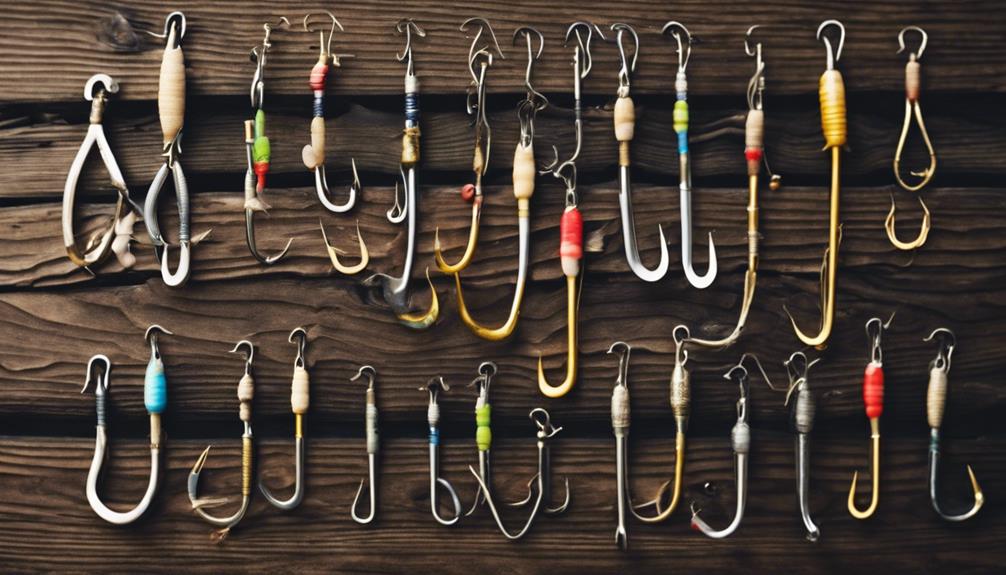Fishing is a beloved pastime in Washington State, where the stunning landscapes and abundant waters provide ample opportunities for both novice and experienced anglers. However, understanding the nuances of fishing seasons is crucial for a successful outing. In this article, we will explore when fishing season ends in Washington State, along with other essential details every angler should know.
Understanding Washington State Fishing Regulations
Before diving into the specifics of when fishing season ends in Washington State, it’s important to grasp the regulations that govern fishing activities. The Washington Department of Fish and Wildlife (WDFW) oversees fishing regulations, which can vary based on species, location, and time of year. The regulations are designed to maintain healthy fish populations and ensure sustainable fishing practices.
Fishing seasons are often divided into several categories, including freshwater and saltwater fishing. Each category has its own set of rules, including open and closed seasons, catch limits, and size restrictions. Always check the WDFW website or consult local authorities for the most current regulations, as they can change annually.
Freshwater Fishing Season End Dates
When does fishing season end in Washington State for freshwater species? Generally, freshwater fishing season typically runs from late spring to late fall. For most lakes, rivers, and streams, fishing for trout usually ends on the last Sunday in October. However, some waters have specific regulations and extended seasons for certain species such as bass and panfish.
It’s essential to note that some rivers and lakes may have year-round open seasons for specific fish species. Therefore, before planning your fishing trip, check the WDFW’s freshwater fishing regulations to confirm the specific end dates for the waters you plan to fish.
Saltwater Fishing Season End Dates
Saltwater fishing seasons in Washington State can differ significantly from freshwater ones. Many saltwater species have designated seasons, particularly salmon and bottom fish. The majority of saltwater fishing for salmon typically ends in late September or early October, depending on the specific area and species. For example, some areas may have closed seasons for certain salmon species to protect populations during spawning.
Bottom fish, such as halibut and rockfish, also have specific regulations concerning their seasons. Generally, halibut fishing in Washington State is allowed from mid-April to mid-September, while rockfish seasons vary based on the species and location. Always verify the exact dates for saltwater fishing seasons on the WDFW website to avoid any violations.
Special Regulations for High-Quality Fisheries
Washington State is home to numerous high-quality fisheries that may have unique regulations. Certain lakes and rivers are managed for trophy trout or specific fish species, and these locations often have extended fishing seasons. For instance, some lakes may allow fishing year-round for certain species, provided that the angler adheres to specific rules.
Additionally, some areas may have “Selective Gear Rules,” which dictate the equipment that can be used and the methods of fishing allowed. These rules are aimed at enhancing the fishing experience while maintaining a healthy ecosystem. Always read the signage at fishing locations and consult with local fish and wildlife offices to learn about any special regulations.
Best Times to Fish in Washington State
While knowing when fishing season ends in Washington State is important, understanding the best times to fish can optimize your experience. Spring and fall are often considered the prime seasons for fishing due to the fish’s natural behavior and feeding patterns. During these periods, fish are more active, making them easier to catch.
In spring, as the waters warm, fish become more active and begin to spawn. Many anglers prefer this time for trout fishing in lakes and rivers. In contrast, fall is an excellent time for salmon fishing, as they move upstream to spawn. Understanding the seasonal patterns of different species can significantly improve your fishing success.
Popular Fishing Locations in Washington State
Washington State is brimming with fantastic fishing locations, each offering unique experiences. Popular freshwater fishing spots include Lake Washington, the Columbia River, and the Yakima River, where anglers can catch various species, including trout and bass.
For saltwater fishing, Puget Sound is a favorite among anglers, offering an abundance of salmon and bottom fish. The Strait of Juan de Fuca is also known for its excellent fishing opportunities. When considering where to fish, always check local regulations, as different locations may have different seasons and rules.
Conservation Efforts and Sustainable Fishing
As an angler, it is essential to practice sustainable fishing to protect Washington State’s natural resources. Overfishing can lead to depleted fish populations, negatively impacting the ecosystem. The WDFW promotes several conservation efforts, including catch-and-release practices and habitat restoration projects.
By adhering to fishing regulations, such as size and catch limits, anglers contribute to the sustainability of fish populations. Additionally, participating in local clean-up efforts and supporting conservation organizations can help preserve the natural beauty and health of Washington’s waterways.
Conclusion: Know Before You Go
In summary, knowing when fishing season ends in Washington State is crucial for every angler. With different regulations for freshwater and saltwater fishing, it’s essential to stay informed. Always consult the WDFW website for the latest updates on fishing seasons, regulations, and specific locations.
By understanding the fishing seasons, practicing sustainable fishing, and knowing the best times and places to fish, you can enjoy all that Washington State has to offer. Whether you’re an experienced angler or just starting, respecting the rules and engaging with the community will enhance your fishing experience and contribute to the preservation of this beautiful state’s aquatic resources. Happy fishing!
